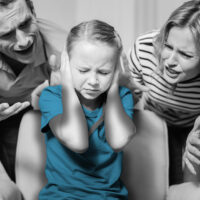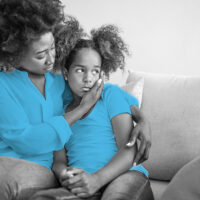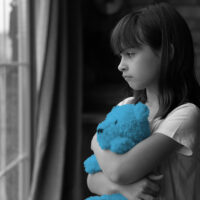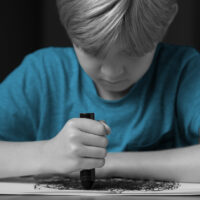Adverse Childhood Experiences (ACEs) are defined as situations that lead to an elevated risk of children and young people experiencing damaging impacts on their health and other social outcomes across the life course.
ACEs – Adverse Childhood Experiences
-

The Risks and Benefits of Social Media on the Mental Health of Adolescents
This talk will explore the burgeoning use of social media by adolescents in today’s society.
-

Words Matter: Understanding, Impact, and Prevention of Childhood Verbal Abuse
Set of three webinars on Childhood Verbal Abuse (CVA). This is characterised by adults shouting, yelling, denigrating, and verbally threatening the child. These types of adult actions can be as damaging to a child’s development as other currently recognized and forensically established subtypes of maltreatment such as childhood physical and sexual abuse.
- Event type
- Live Stream
- Location
- LIVE STREAM
-

Responding to sibling sexual abuse – putting research into action
This workshop will outline current knowledge and evidence in the sibling sexual abuse field and look at how that knowledge can be used to inform how we positively support a family’s journey, from identification of harm, safety planning and assessment, through to therapeutic intervention, case closure and aftercare support
- Event type
- Live Stream
- Location
- LIVE STREAM
-

Why I didn’t send my child back to school after the pandemic: The Rise in Home Education
‘Why I didn’t send my child back to school after the pandemic: The Rise in Home Education’ will be led by Tami Alikhani. This is webinar is organised by ACAMH’s Adverse Childhood Experiences (ACEs) Special Interest Group.
- Event type
- Live Stream
- Location
- LIVE STREAM
-

Story Stems – a window into a child’s internal world
This webinar will cover the Story Stem Assessment Profile (SSAP) and its use as an assessment of a child’s attachment and internal representations. The SSAP consists of 13 narrative stems, to which the child provides their own story completions; information is thus gained directly from the child in a non-threatening context.
- Event type
- Webinar
- Location
- LIVE STREAM
-

Assessing and understanding trauma: bridging the gap between research and practice
The session will provide a bridge between research and clinical contexts of measuring trauma and adverse life experiences in looked-after children populations. Dr Saul Hillman, Richard Cross, and Katharine Anderson present
- Event type
- Live Stream
- Location
- LIVE STREAM
-

The NHS Violence Reduction Programme – What research shows about the health service response to violence affecting young people
Free webinar open to all, and is organised by ACAMH’s Adverse Childhood Experiences (ACEs) Special Interest Group. The webinar will be led by Michael Carver, Clinical Lead for the NHS London Violence Reduction Academy.
- Event type
- FREE live stream
- Location
- FREE live stream
-

Child Maltreatment and Mental Health Problems: The Role of the Subjective Experience
‘Child Maltreatment and Mental Health Problems: The Role of the Subjective Experience’, is a free webinar open to all, and is organised by ACAMH’s Adverse Childhood Experiences (ACEs) Special Interest Group. The webinar will be led by Oonagh Coleman is a final-year PhD student at the Social, Genetic, and Developmental Psychiatry Centre at King’s College London.
- Event type
- FREE live stream
- Location
- FREE live stream
-

Trauma Aware Education
Dr. Judith Howard, Associate Professor of Education at Queensland University of Technology (QUT), and Dr. Lyra L’Estrange, Senior Lecturer in Education at Queensland University of Technology (QUT), will lead this session on Trauma Aware Education on ‘An education system solution to the complex systemic problem of child abuse and neglect: One Australian university’s approach’.
- Event type
- Live Stream
- Location
- LIVE STREAM
-

Schwartz Rounds – Free ACES SIG webinar
Dr. Jon Goldin will present a seminar on the value of ‘Schwartz Rounds’ in promoting the work of Practitioners working together across Services. This is a free webinar open to all, and is organised by ACAMH’s Adverse Childhood Experiences (ACEs) Special Interest Group.
- Event type
- FREE live stream
- Location
- FREE live stream